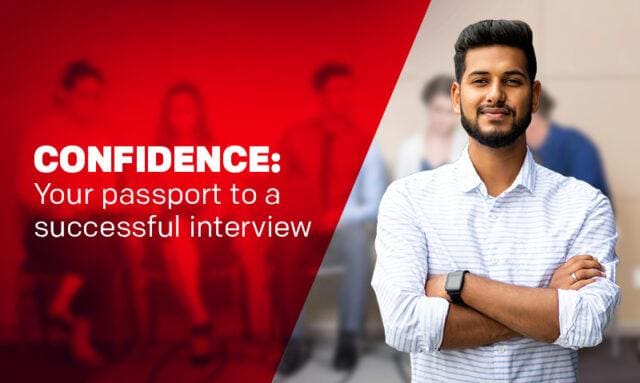how to attend interview confidently ? confidence is key to making a lasting impression on potential employers. Whether you are seeking CNC jobs abroad or any other opportunity through overseas placement services, your level of confidence can greatly influence your chances of success.
How to attend interview confidently ? However, it’s essential to understand the fine line between underconfidence and overconfidence. Let us explore the signs of underconfidence and overconfidence and how they can impact your interview.
5 Tips for :- how to attend interview confidently ?
Simply Relax. While ready to be welcomed by your questioner, take a couple of seconds to do some relaxing. …
do some breathing. …
Don’t Fidget. …
Make Eye Contact
Think Decidedly
I. Signs of Underconfidence:
- Avoiding Eye Contact: People lacking confidence often find it challenging to maintain eye contact during interviews. They may look down or shift their gaze, sending a subconscious message of insecurity to the interviewer.
- Speaking Softly or Hesitantly: Underconfident individuals tend to speak softly, mumble, or hesitate when answering questions. Their lack of conviction can make it difficult for interviewers to assess their true potential.
- Lack of preparation: Insufficient preparation is a common sign of underconfidence. Candidates who are underprepared often struggle to provide specific examples or articulate their skills and qualifications effectively.
- Fidgeting or Nervousness: Nervous behaviours such as fidgeting, excessive hand gestures, or tapping can indicate a lack of confidence. These physical manifestations can distract both the interviewee and the interviewer, hindering effective communication.
Examples of how these behaviours can negatively impact an interview:
- Avoiding eye contact may make you appear disinterested or untrustworthy.
- Speaking softly or hesitantly can undermine your credibility and convey a lack of self-assurance.
- Lack of preparation can leave you stumbling for answers, reflecting poorly on your competence.
- Fidgeting or nervousness can be perceived as a lack of composure, raising doubts about your ability to handle pressure.
II. Signs of Overconfidence:
- Dominating the Conversation: Overconfident candidates may excessively dominate the conversation, interrupting the interviewer or not allowing them to finish their questions. This behaviour reflects a lack of respect and can alienate the interviewer.
- Ignoring the Interviewer’s Questions: Instead of actively listening and responding appropriately, overconfident individuals often disregard the interviewer’s questions and steer the conversation toward their own agenda. This behaviour can be seen as disrespectful and self-centred.
- Making Unrealistic Promises: In an attempt to impress, overconfident candidates may make grandiose promises without a realistic understanding of their capabilities. Such overpromising can lead to disappointment if you fail to deliver on your claims.
- Boasting about Accomplishments: While it’s important to highlight your achievements, excessive boasting can be off-putting. Overconfident individuals may come across as arrogant, disregarding the collaborative nature of the interview process.
Examples of how these behaviours can negatively impact an interview:
- Dominating the conversation can prevent you from truly understanding the interviewer’s needs and conveying your suitability for the role.
- Ignoring the interviewer’s questions demonstrates a lack of active listening and can hinder effective communication.
- Making unrealistic promises raises doubts about your honesty and ability to fulfil expectations.
- Boasting about accomplishments without humility can be perceived as egotistical and turn off potential employers.
III. how to be confident in an interview :
Displaying an appropriate level of confidence is crucial during interviews for overseas placement services or CNC jobs abroad. Striking the right balance can yield several benefits while avoiding the drawbacks associated with underconfidence and overconfidence.
Benefits of how to be confident in an interview:
- Instills trust and credibility in the interviewer.
- Demonstrates belief in your skills and qualifications.
- Enhances your ability to articulate your experiences effectively.
- It helps create a positive and memorable impression.
Drawbacks of displaying under and overconfidence:
- Underconfidence can make you appear uncertain and less capable.
- Overconfidence may come across as arrogance or lack of self-awareness.
- Both extremes can hinder effective communication and rapport-building.
- They may create doubts about your ability to handle job responsibilities.
Tips for how to be confident in an interview:
- Practice self-awareness: Recognized your strengths and weaknesses to present yourself authentically without downplaying your capabilities or overstating them.
- Prepare thoroughly: Adequate preparation boosts confidence and equips you with specific examples to support your claims during the interview.
- Actively listen: Engage in active listening, allowing the interviewer to express themselves fully before responding thoughtfully. This demonstrates respect and attentiveness.
- Strike a balance between humility and self-assurance: Showcase your achievements with humility, acknowledging the contributions of others while demonstrating your confidence in your abilities.
How to attend interview confidently for overseas placement services and CNC jobs abroad. By understanding the signs of underconfidence and overconfidence, candidates can work towards striking the right balance.
Finding the sweet spot of confidence can help you create a positive impression, effectively communicate your skills, and increase your chances of securing the desired job opportunity. Remember, confidence should originate from self-belief and competence, enabling you to present your best self during interviews.
